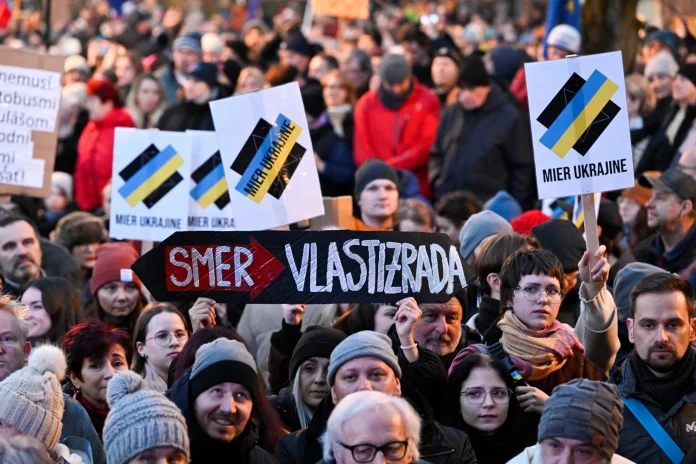In more than 40 cities of Slovakia, large -scale anti -government protests took place on February 21. Thousands of people took to the streets demanding the resignation of Prime Minister Robert Fitzo. The largest demonstrations were held in the capital of the country - Bratislava, where, according to experts, about 12,000 people gathered. Participants of the protests chanted the slogans "Slovakia is Europe" and "Enough, Fitzo" , expressing dissatisfaction with the policy of the current government.
The Fitzo government rallies have been going on for several weeks in the country. According to Dennik N , more than 40,000 people gathered in protest stocks two weeks earlier. However, even a decrease in the number of participants does not indicate the extinction of the protest movement. Anti -government sentiments continue to gain momentum, and citizens go outside in dozens of cities, demanding political changes.
The reason for the mass dissatisfaction was the aggravation of the country's internal political situation and anxiety by the European course of Slovakia. Fitzo, known for his criticism of the European Union and the desire to converge with other political forces that have pro -Russian views, causes serious controversy in Slovak society. His actions and rhetoric, in particular, regarding the country's foreign policy, became a catalyst for mass protests.
The issue of European integration is especially acute among young people and pro -European -minded citizens. They fear that the policy of the current government can weaken the role of Slovakia in the EU and adversely affect the country's economic prospects.
Protests are also exacerbated against the background of the international situation. Slovakia, as a member of NATO and the EU, has traditionally maintained the joint position of the event on global security issues. However, Fitzo's recent political statements are concerned in Brussels. Protest participants urge the government to preserve the European course of the country and not to evade the support of democratic values.
Although official comments from Fitzo have not yet been received, experts suggest that the further development of the protest movement can affect the government's stability and make the prime minister to make concessions. Political observers do not exclude the possibility of changing the government or even early elections in the event of a further escalation of the situation.


